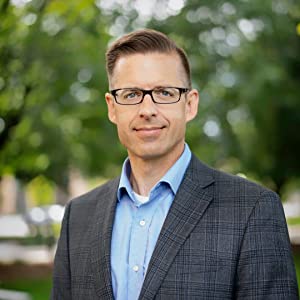In many congregations today, there is a basic social contract that goes something like this: clergy and staff (the “ministers”) are expected to perform Christian faith for congregation members, and congregation members are primarily expected to express their discipleship by supporting the institutional church. Clergy and staff are the ones expected to read the Bible, pray, evangelize, and perform public witness. Congregation members are expected to donate, volunteer, and show up at church activities and programs.
To ask regular church members (what we at Faith+Lead call “everyday disciples”) to pray aloud, interpret scripture, talk about their own spiritual lives, or share their faith is uncomfortable because little in their experience of church has formed them to do these things. They are happy to defer to the professionals and experts because they have been conditioned to do so, often over a lifetime of church attendance. Their experience of church has not been oriented around equipping them to embody Christian discipleship and witness in daily life.
We live in a time when this paradigm of ministry is increasingly unhelpful. Contemporary culture is deeply participatory—people don’t want to consume expert performance passively, but rather they want to be involved in co-creating their reality. Especially for emerging generations, watching a few professionals perform spirituality for everyone else seems strange and disconnected. People are looking for trustworthy spaces to explore life’s questions in community and to try on practices together, not just watch someone else doing them. This is one reason for the explosion of interest in meditation, yoga, and other forms of spiritual practice outside of religious institutions.

The time is overdue to shift from a performative to a formative model of ministry. In a formative model, everyone in the church owns their spiritual development and discipleship. The role of leaders is not just to model an authentic identity as a disciple of Jesus, but also to cultivate spiritual growth and discipleship in the whole community. This happens in relationship with one another, through meeting people where they are and inviting them to take simple steps toward deeper Christian identity and practice. The journey isn’t linear and doesn’t look the same for everyone. Much of the wisdom about how to do this lies among the whole people of God, not just clergy or staff.
Renegotiating priorities
Making this shift involves some significant renegotiations for many communities. The first is around inherited expectations. Many people in traditional congregations never signed up to take a deep spiritual journey. For them, church functions primarily as a social, cultural, or community service organization. Younger generations typically get these needs met elsewhere than church, which is one of the reasons why so many congregations are graying right now. Not everyone will want to make this shift, but if you’re a leader, go find the people who are ready and willing and begin there.
It also means that clergy and staff need to prioritize their own spiritual growth and practice, which are easily neglected as fewer people seem willing to volunteer now and more institutional maintenance falls on their own shoulders. The temptation is to get busier doing administration to keep everything running. But that only leads to burnout, which we’re seeing widely among clergy and church staff today.
The solution is a simplification and refocusing of church life around participatory spiritual practices, conversations, and explorations of how Christian faith connects with church members’ and neighbors’ struggles and yearnings. The post-pandemic season is a time to hold inherited forms of ministry lightly and ask hard questions about how life-giving they are for this moment. What should be put aside for a time to free up energy and capacity to focus on this deeper spiritual work?
Grassroots spiritual practices
Our experience at Faith+Lead is that congregations who are willing to try simple, grassroots spiritual practices that help them connect their faith with daily life typically find this highly energizing. Through these practices, they tap into the Spirit’s energy and movement in community. People begin to go through daily life with a renewed spiritual focus. This experience frees congregations to be able to let go of committees, ministries, activities, and structures that no longer facilitate meaningful connections with God, each other, and their neighbors.
Making this shift also means that church leaders need to know not only how to pray, read the Bible, evangelize, and give public witness, but they also need to know how to equip others in these practices. Such equipping must be done in relatively safe, shame-free spaces where people can be lovingly invited to take the next step in their faith journey. The simpler and more accessible such practices are, the better.
I don’t think Jesus ever intended for his followers to be passive institutional supporters rather than deeply engaged disciples, nor for the leaders of his church to carry the burden of doing the spiritual work for everyone else. Now is a time to reclaim the priesthood of all believers and live into a more vital, participatory, mutual model of ministry.
To learn more about this shift from performative to formative ministry, see Dwight’s new book with Michael Binder and Tessa Pinkstaff, Leading Faithful Innovation: Following God into a Hopeful Future (Fortress Press, 2023).





